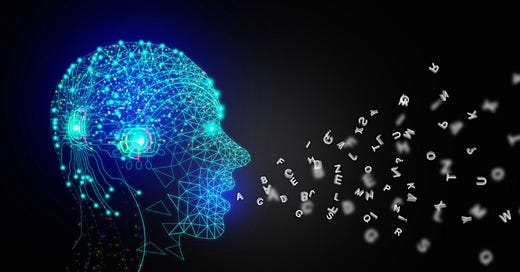When we see things made of nobody, will we care more about things that actually are somebody? That’s the question worth asking before artificial intelligence takes over all the creative products we are not willing to pay for.
In May, Google shocked the world with the realism in the footage generated by its new Veo project. Just a few months ago, the large language models couldn’t create a plausible human hand and now they’re generating human-less movies. We already knew the LLMs could scrape the internet to come up with a written plot that would fit nicely in the endless Marvel catalog, much less in something of Netflix quality, but now they’re mastering the characters to act it out.
Hitting closer to home, yesterday political ad-maker Justin Germany – who I’ve known to be an innovator in my field for a long time – released a 30-second ad for the conservative credit card company Coign that is entirely A.I.
Since I make ads for clients like Justin’s, I have been waiting for someone to do this, but not waiting as long as I had hoped.
The footage that Google Veo is generating is not yet excellent, or even plausible to an attentive eye, because the subtleties of human behavior are missing. No grins are sly. No eyebrows raise only half-way. No dialogue is delivered with a believable lack of confidence. But that will change; the models are getting smarter by the hour.
A good editor can hide some of A.I.’s lack of nuance with quick cuts and splashy graphics – and for the rest of the gap, the audience will decide it doesn’t care. Our numbness to compromise is already easy.
Just thirteen months ago, a New York Times story about a lawsuit against an obscure AI company by two voice actors rattled the advertising industry. The Times explained, with an air of revelation: “They made their living as voice actors, and A.I. technologies were beginning to generate voices that sounded like the real thing.” How quaint the shock.
Now we are oblivious to audio tracks on the advertisements that air during remnant inventory on cable television overnight. Few of those ads use human voice actors – generating no hue and cry from the viewers. Television promo teasers, movie trailers, corporate convention videos, public address announcements and other non-literary moving picture products are eat up with fake voices. Do you care? I doubt it.
In the advertising agency I helped found, we use A.I. voices for rough cut internal trial spots that never make the air, but we do not cut the voice actors out of the equation for the publicly-distributed art to which we affix our company slate. Why? Because we believe in connection.
We think. We strategize. We write. Our work is bespoke, and I want the voices on our ads – the things that we use to grab viewers on a personal level - to be authentic and intentional. We use A.I. for research, simulations, story boards, to test ideas, and (indirectly) on undisclosed stock footage we buy from common sources. That list will grow over time. So this is not a piece to proclaim forever fuddy-duddiness or a refusal to use good tools.
The question I’m asking is if inundation by the phoniness of AI actors will cause us as a culture to cherish the authentic.
Will we go to more live theater? Will concerts, bar bands and even buskers mean more? Will we be compelled to get off our couch and go places where the real people on stage move and celebrate like they mean it? Will the suspense of wondering if they might change up their routine – or screw up their routine - be more worth the drive?
One predictor could be what has happened on TV. We’re already turning to live sports and unscripted entertainment like awards shows more than ever before – even in a streaming era that is the golden age of scripted dramas. Over 90 of the top 100 television shows each year now are live sporting events. Most of the rest are unscripted specials like the Oscars or election nights.
Even though we love the unlimited series at the touch of one of the six remote controls on our coffee tables, we still want to see who wins the Grammys, or a game between two middling college football teams in the Tangerine Bowl. Why are we picking the live over the rehearsed? Does that mean we crave what’s real?
Video games have used artificial intelligence and digitally generated voices since before we called them that. We find those creations inoffensive because they’re honest about not asking us to suspend disbelief. We do not pretend to have a relationship with the shooters in Fortnite or the quarterbacks in Madden. But the people in music, advertising, movies, and TV shows talk to us, and not at us. How much of that contrived intimacy will we sell out to server farm holograms, in a world where loneliness is a scourge?
The A.I. regulation debates in legislative bodies are focusing almost exclusively on commercial matters. Who owes who money for the bits and bytes that formed foundations of unauthorized collaboration? Whose job will be lost when computers automate every clerical – and modular white collar - task we can imagine?
But it may be that A.I. threatens to take away something bigger from us than royalties or salaries. It may be that we should be worried about it taking away the remaining fiber of the common cloths we huddle under to feel something.





